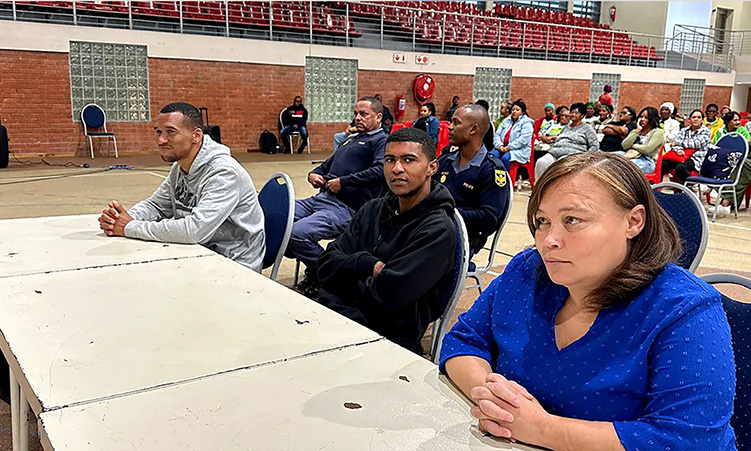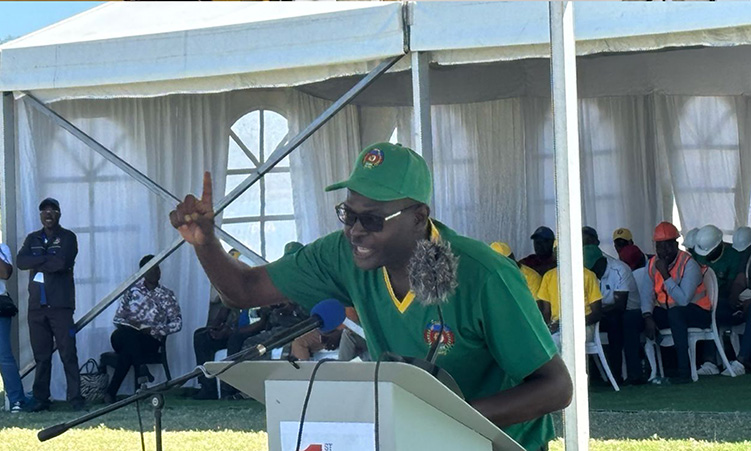‘THINK higher and feel deeper’ was the advice of Nobel Peace Prize winner Professor Eli Wiesel to attendees at this year’s Monaco Media Forum on Leadership for the Digital Revolution, which took place in the Principality from November 8-10.
Wiesel, chairperson of the jury which awarded a media prize this year to Salah Uddin Shoaib Choudhury, publisher and editor of the Weekly Blitz in Bangladesh, exhorted his audience to speak truth to power, adding that ‘you have the power to guide, to influence, to move people’. Addressing an audience primarily made up of cutting-edge new media, from practitioners to presidents and CEOs of companies such as Google, MySpace, Facebook, Dassault Systemes, Publicis Group, PlaNet Finance and a host of others, Wiesel urged that media be used to ‘help humanity make one step forward’, saying that if even one per cent of media’s work was used for humanitarian purposes, it could make a difference in combating hatred and educating children so they wouldn’t grow up in a world of danger.History today, he added, was going through what he termed “horrifying convulsions” and he posed the question why we could not cure the world of the evil of poverty; to those suffering from AIDS and to feeding the children.”Every minute a child dies somewhere of disease, violence, indifference and you tell me we cannot save them,” said Wiesel, urging all present to “think higher and feel deeper”.Choudhury, the prize recipient whose editorial line confronts religious hatred and openly urges Islam to embrace peaceful co-existence with other religions, made a brief acceptance speech after accepting his award from HSH Prince Albert II of Monaco, Chairperson of the Monaco Media Forum.This year marked the second edition of the Monaco Media Forum, which focused on the growing global debate on the future of media.With technology and the digital revolution blowing away the boundaries of traditional media, along with the value-chains on which both print and broadcast media are based, the issue is of immense importance to all societies around the world, according to MMF organisers.The focus of the conference this year was to examine ways and means to navigate what is now known as the ‘Blur’, the vast expanses of new media online and the almost endless information and variety available in the digital arena, from the Internet to mobile technologies.Co-chairs of the Forum include Barry Diller, Chairman and CEO of IAC and Expedia, Sylvio Scaglia, founder and chair of Babelgum; James Murdoch CEO of Sky, Jacques Attali, CEO of A&A and President of PlaNet Finance and Maurice Levy, Chairman and CEO of Publicis Groupe.Delegates included several dotcom millionaires and a host of new media, primarily from Europe and the US but also spanning other continents.Presentations included Gizmoz, a tool where users can ‘put themselves in movies’ and is an online form of visual self-expression; the NewspaperDirect group, originally from Russia and based in Canada, which has 600 online publications translated instantly into several languages; the MySpace and Facebook phenomena; wixi; .mobi; blogher; Your Truman Show; Blyk from Finland; Nokia and many others.David Kenny of Digitas spoke on the subject of ‘media unbound’, emphasising that the global nature of the Internet had moved power to the people, yet there were difficulties in navigating an expanse of content that did not separate company from individual.Tim Armstrong, VP of Google, spoke of advertisers who, in his words ‘struggle with the blur’ and added that advertisers’ money was now shifting to partners with whom they could co-produce in new media.The Asia-pacific area, he said, would by 2010 be the biggest presence on the Internet.Another interesting presentation dealt with who’s online and it was revealed that the age group 60 and over had little to do with new media; the Baby Boomers from 41-59 used the Internet primarily at work; the Generation X, 27-40, found it an essential tool; and the Millennials (16-27) were completely immersed in new media, from the iPhone to the Internet.Wiesel’s appeal to ‘think higher and feel deeper’ had deep resonance in a forum which dealt primarily with the virtual rather than the real, and undoubtedly sowed seeds of thought among the audience as to how the new globalised media could negate what he called “the curse of the Blackberry” and try to make a difference and staunch the “horrifying convulsions” of history that the former Nazi concentration camp survivor spoke of.* Gwen Lister attended the Monaco Media Forum as a member of the Jury, headed by Prof Eli Wiesel, which selected the prize winner.Addressing an audience primarily made up of cutting-edge new media, from practitioners to presidents and CEOs of companies such as Google, MySpace, Facebook, Dassault Systemes, Publicis Group, PlaNet Finance and a host of others, Wiesel urged that media be used to ‘help humanity make one step forward’, saying that if even one per cent of media’s work was used for humanitarian purposes, it could make a difference in combating hatred and educating children so they wouldn’t grow up in a world of danger.History today, he added, was going through what he termed “horrifying convulsions” and he posed the question why we could not cure the world of the evil of poverty; to those suffering from AIDS and to feeding the children.”Every minute a child dies somewhere of disease, violence, indifference and you tell me we cannot save them,” said Wiesel, urging all present to “think higher and feel deeper”.Choudhury, the prize recipient whose editorial line confronts religious hatred and openly urges Islam to embrace peaceful co-existence with other religions, made a brief acceptance speech after accepting his award from HSH Prince Albert II of Monaco, Chairperson of the Monaco Media Forum. This year marked the second edition of the Monaco Media Forum, which focused on the growing global debate on the future of media.With technology and the digital revolution blowing away the boundaries of traditional media, along with the value-chains on which both print and broadcast media are based, the issue is of immense importance to all societies around the world, according to MMF organisers.The focus of the conference this year was to examine ways and means to navigate what is now known as the ‘Blur’, the vast expanses of new media online and the almost endless information and variety available in the digital arena, from the Internet to mobile technologies.Co-chairs of the Forum include Barry Diller, Chairman and CEO of IAC and Expedia, Sylvio Scaglia, founder and chair of Babelgum; James Murdoch CEO of Sky, Jacques Attali, CEO of A&A and President of PlaNet Finance and Maurice Levy, Chairman and CEO of Publicis Groupe.Delegates included several dotcom millionaires and a host of new media, primarily from Europe and the US but also spanning other continents.Presentations included Gizmoz, a tool where users can ‘put themselves in movies’ and is an online form of visual self-expression; the NewspaperDirect group, originally from Russia and based in Canada, which has 600 online publications translated instantly into several languages; the MySpace and Facebook phenomena; wixi; .mobi; blogher; Your Truman Show; Blyk from Finland; Nokia and many others.David Kenny of Digitas spoke on the subject of ‘media unbound’, emphasising that the global nature of the Internet had moved power to the people, yet there were difficulties in navigating an expanse of content that did not separate company from individual. Tim Armstrong, VP of Google, spoke of advertisers who, in his words ‘struggle with the blur’ and added that advertisers’ money was now shifting to partners with whom they could co-produce in new media.The Asia-pacific area, he said, would by 2010 be the biggest presence on the Internet.Another interesting presentation dealt with who’s online and it was revealed that the age group 60 and over had little to do with new media; the Baby Boomers from 41-59 used the Internet primarily at work; the Generation X, 27-40, found it an essential tool; and the Millennials (16-27) were completely immersed in new media, from the iPhone to the Internet.Wiesel’s appeal to ‘think higher and feel deeper’ had deep resonance in a forum which dealt primarily with the virtual rather than the real, and undoubtedly sowed seeds of thought among the audience as to how the new globalised media could negate what he called “the curse of the Blackberry” and try to make a difference and staunch the “horrifying convulsions” of history that the former Nazi concentration camp survivor spoke of.* Gwen Lister attended the Monaco Media Forum as a member of the Jury, headed by Prof Eli Wiesel, which selected the prize winner.
Stay informed with The Namibian – your source for credible journalism. Get in-depth reporting and opinions for
only N$85 a month. Invest in journalism, invest in democracy –
Subscribe Now!










